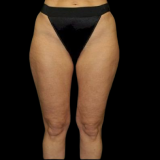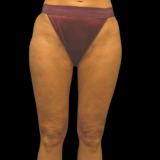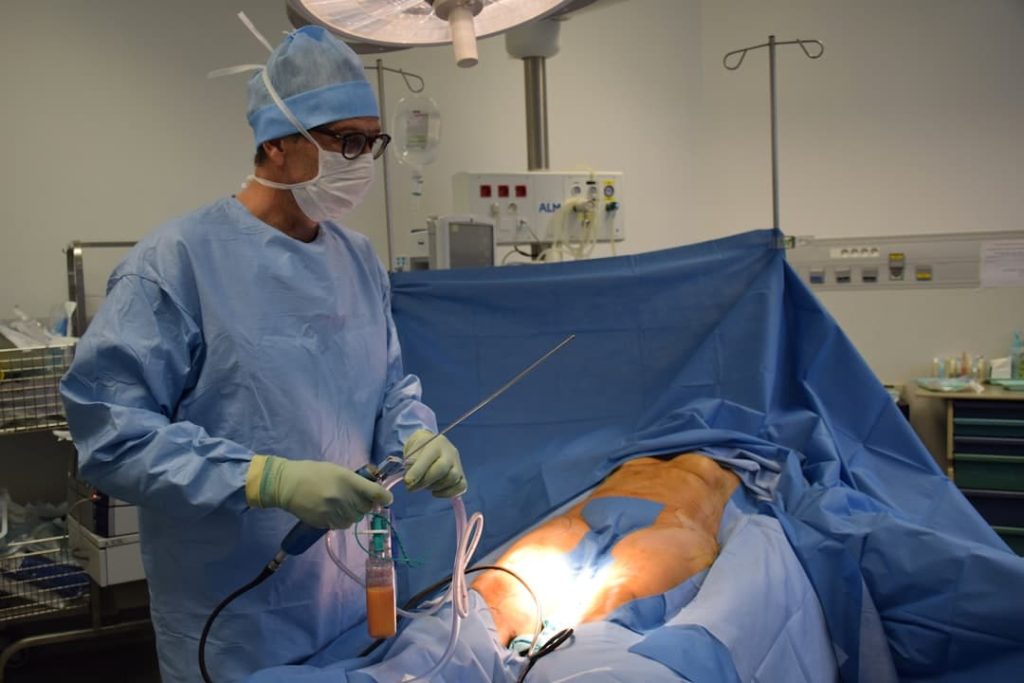Contents
When Can I Work Out After a Tummy Tuck?
How long after a tummy tuck can I workout? This is a frequent question for those eager to get back to their fitness regime after achieving a sculpted midsection. Here’s the short answer:
- 0-2 Weeks: Rest and light walking.
- 2-4 Weeks: Light cardio, stationary cycling, avoiding abdominal strain.
- 4-6 Weeks: Gradual increase in activity, light weight lifting, upper body exercises.
- 6-8 Weeks: Begin light abdominal exercises, like pilates and yoga, with doctor’s clearance.
- 8-12 Weeks: Full workout routine, including crunches, sit-ups, and planks.
A tummy tuck, also known as abdominoplasty, is a life-changing procedure that can help you achieve a more contoured and youthful midsection. However, it’s crucial to understand the recovery process and timeline before diving back into your workout routine. The journey includes several recovery phases, where specific activities are recommended or discouraged to ensure safe and effective healing.
I’m Dr. Shlomo Widder. As a board-certified plastic surgeon with decades of experience, I’ve helped many patients understand their recovery timelines post-tummy tuck and safely resume their workouts. Let’s explore the steps in detail to ensure a smooth and healthy return to your fitness goals.
Understanding the Tummy Tuck Procedure
Abdominoplasty, commonly known as a tummy tuck, is a surgical procedure that helps remove excess skin and fat from the abdomen. This procedure is often sought by individuals who have experienced significant weight loss, pregnancy, or aging, which can leave the abdominal area with loose, sagging skin.
Excess Skin Removal
During the procedure, the surgeon makes a horizontal incision between the pubic hairline and the belly button. The upper abdominal skin is then pulled down like a window shade, and any excess skin is trimmed away. This step is crucial for achieving a smoother, more toned appearance.
Muscle Tightening
One of the key aspects of abdominoplasty is muscle tightening. The surgeon lifts the abdominal skin to access the underlying muscles. These muscles are then sutured together if they have become weakened or separated, creating a firmer abdominal wall. This step is essential for providing a flatter and more toned abdomen.
Anesthesia
The procedure is performed under general anesthesia, ensuring that the patient is completely asleep and pain-free during the surgery. This is important for both the patient’s comfort and the surgeon’s ability to perform the procedure effectively.
Compression Garment
After the surgery, patients are typically required to wear a compression garment. This garment helps reduce swelling, supports the abdomen as it heals, and improves blood circulation. It’s usually worn for several weeks post-surgery to ensure optimal healing and results.

Understanding these steps can help you better prepare for what to expect during and after your abdominoplasty. Now, let’s dive into the recovery phases and how long after a tummy tuck you can safely resume workouts.
How Long After a Tummy Tuck Can I Workout?
Initial Recovery Phase (0-2 Weeks)
In the first two weeks after your tummy tuck, rest is crucial. Your body needs time to heal, and pushing yourself too soon can cause complications. During this period, focus on light walking to promote blood circulation and reduce the risk of blood clots. Walking around your house or taking short, gentle strolls is ideal.
Compression garments are essential during this phase. They help reduce swelling and support your abdomen as it heals. Make sure to wear them as instructed by your doctor.
Light Activity Phase (2-4 Weeks)
After two weeks, you can gradually increase your activity level. Light cardio exercises like longer walks or using a stationary bike are recommended. These activities help maintain your fitness without putting too much strain on your abdomen.
Avoid any exercises that stress the abdominal area during this phase. Focus on activities that keep you moving but don’t involve lifting or core workouts.
Gradual Increase in Activity (4-6 Weeks)
At this stage, you can introduce light weight lifting and upper body exercises. Focus on strengthening your arms and legs without engaging your core. Exercises like bicep curls, tricep extensions, and leg lifts are good options.
It’s still important to avoid core workouts. Your abdominal muscles need more time to heal before you can safely engage them.
Resuming Core Workouts (6-8 Weeks)
Around the six to eight-week mark, you can start incorporating light core exercises, but only with your doctor’s clearance. Pilates and yoga are excellent choices as they focus on gentle stretching and strengthening.
Light abdominal exercises can be added gradually. Start with basic movements and slowly increase intensity as your body allows.
Full Workout Routine (8-12 Weeks)
By eight to twelve weeks, you should be able to resume your normal exercise routine. Begin with crunches, sit-ups, and planks, but start slowly and progressively increase your repetitions.
Focus on maintaining impeccable form to avoid injury. Listen to your body and adjust your workouts as needed to ensure a safe and effective recovery.
By following these guidelines and your doctor’s advice, you can safely return to your workout routine after a tummy tuck. Up next, we’ll discuss the best exercises to start with post-surgery.
Best Exercises to Start With Post-Tummy Tuck
After a tummy tuck, it’s crucial to ease back into exercise with activities that are gentle on your body. Here are some of the best exercises to start with:
Walking
Walking is one of the simplest and most effective exercises you can do after a tummy tuck. It’s low-impact and helps improve blood circulation, which is vital for healing. Start with short, leisurely walks around your house. As you feel more comfortable, gradually increase the duration and distance.
“Walking is gentle on your body, reduces the risk of strain, and promotes a gradual return to more intense workouts.” – NuBody Concepts
“Walking is gentle on your body, reduces the risk of strain, and promotes a gradual return to more intense workouts.” – NuBody Concepts
Elliptical
Using an elliptical machine can be a great way to get some cardio without putting too much stress on your abdominal muscles. It’s a low-impact exercise that engages multiple muscle groups. Start with a light resistance and short sessions, then gradually increase as your body allows.
Stationary Cycling
Stationary cycling is another excellent low-impact exercise. It helps improve cardiovascular fitness while being easy on your joints and abdomen. Begin with short, low-intensity sessions and gradually increase the duration and intensity as you build strength and confidence.
Low-Impact Exercises
Incorporate other low-impact exercises like gentle stretching and light strength training for your arms and legs. These activities help maintain muscle tone and flexibility without straining your core. For example, light dumbbell exercises for your upper body can be beneficial.
“Lifting light weights to strengthen your arms, chest, and shoulders is often appropriate for patients after 3 – 4 weeks of recovery.” – Tulsa Surgical Arts
“Lifting light weights to strengthen your arms, chest, and shoulders is often appropriate for patients after 3 – 4 weeks of recovery.” – Tulsa Surgical Arts
These exercises are recommended to help you safely ease back into your fitness routine. Always listen to your body and consult your doctor before starting any new exercise regimen.
Next, we’ll cover some essential tips for maintaining a safe workout routine post-tummy tuck.
Tips for a Safe Workout Routine Post-Tummy Tuck
Listening to Your Body:
Your body is your best guide during recovery. Pay attention to any discomfort or pain. If an exercise feels too strenuous, stop immediately. Overdoing it can cause complications and delay healing.
Gradual Progression:
Start slowly and gradually increase the intensity of your workouts. Begin with light activities like walking and gradually move to more challenging exercises as your body allows. This approach helps prevent injury and ensures a smooth recovery.
Personal Trainer:
Consider working with a personal trainer experienced in post-surgery recovery. They can customize a workout plan that suits your current fitness level and recovery stage. A trainer can also guide you on proper form to avoid straining your core.
Compression Garments:
Wearing a compression garment during exercise provides support to your abdominal area. It helps reduce swelling, improves blood flow, and maintains the results of your surgery. Make sure to follow your surgeon’s recommendations on how long and when to wear it.
By following these tips, you can safely resume your workouts and enjoy a smooth recovery. Next, we’ll address some frequently asked questions about post-tummy tuck workouts.
Frequently Asked Questions about Post-Tummy Tuck Workouts
How long after a tummy tuck can I lift weights?
Lifting weights after a tummy tuck should be approached with caution. Generally, you can start lifting light weights around 3-4 weeks post-surgery. Focus on exercises that strengthen your arms, chest, and shoulders while avoiding any that engage your core. It’s crucial to get your doctor’s approval before starting, as your specific recovery timeline may vary.
Remember: Avoid heavy lifting and exercises like pull-ups and powerlifting until you get the green light from your surgeon.
Can I do squats 3 weeks after tummy tuck?
At the 3-week mark, you can usually begin light cardiovascular activities and some upper body exercises. However, squats can put significant strain on your abdominal muscles. It’s best to wait until around 4-6 weeks post-surgery before incorporating squats into your routine, and even then, start with bodyweight squats or very light weights.
Key Point: Always consult your surgeon before adding new exercises to ensure they are safe for your recovery stage.
How long does it take for stomach muscles to heal after tummy tuck?
Healing times can vary, but stomach muscles typically take about 6-8 weeks to heal after a tummy tuck. During this period, it’s important to avoid any strenuous activities that engage the core. Light abdominal exercises can usually be reintroduced around this time, but only with your doctor’s approval.
Fact: Many patients can return to their full workout routine, including core exercises like crunches and planks, after 8-12 weeks, provided they have healed properly and received clearance from their surgeon.
Next, we’ll dive into the best exercises to start with after your tummy tuck to ensure a safe and effective recovery process.
Conclusion
At Widder Cosmetic and Plastic Surgery Center, we understand that every patient’s journey is unique. Our goal is to provide personalized care custom to your specific needs. Led by Dr. Shlomo Widder, one of Northern Virginia’s most renowned plastic surgeons, our team prioritizes your safe recovery and ultimate fitness goals.
Achieving your fitness goals post-tummy tuck requires patience and careful planning. By following the recommended exercise timeline and listening to your body, you can gradually resume your workouts without compromising your recovery. The key to a successful recovery is to avoid rushing the process and to always seek your doctor’s approval before advancing your physical activities.
Whether it’s your first tummy tuck or a revision, you can trust Widder Cosmetic and Plastic Surgery Center to guide you through every step of your recovery. For more information about our tummy tuck procedures and to see before-and-after photos, visit our Tummy Tuck Gallery.
Your journey to a healthier, more confident you starts here. Let’s achieve those fitness goals together, safely and effectively.






